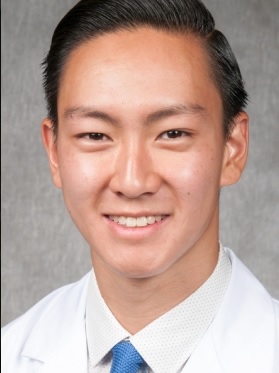In the spirit of the year of realizing things, I’m starting to think that the med school struggle of knowing/doing/being enough never actually ends. Even as physicians, the problem of “enough” persists, albeit in a form less easily remedied by additional time spent reading First Aid or viewing Pathoma. The problem transcends textbook knowledge to that of providing patient-recognized quality care. Of course, smiling and developing rapport go a long way to ease the white-coat apprehension experienced by some. However, this “nice doctor” persona can quickly turn into little more than a façade when we realize that our patients may come from situations drastically different than that of our own. As the medical profession evolves to adopt increasing likeness to the service industry, quantitative values previously measuring physician efficacy are being increasingly supplanted by qualitative measures dictated by the patient. Reliance on numbers such as the percentage prevalence of electronic health records use or hospital 30-day readmission rates for reporting quality of care have fallen out of favor. The zeitgeist trends towards pay-for-performance physician compensation as “good doctors” are increasingly measured by their skill at engaging patients and involving them in shared decision-making. In our burgeoning qualitative-based value system, the highest-yield knowledge for becoming a top percentile-performing physician is cultural competency.
Cultural competency/sensitivity/humility is the ability to go beyond acknowledging patient mistrust and self-bias to effectively communicate across languages and literacy levels. This also includes negotiating multifactorial causes of health disparities. This might leave you wondering: Is all that really necessary for every 15-minute patient interaction? Are you sure this isn’t a “oh you should know all 100 physical exam maneuvers (but you’ll only realistically use half)” type of situation?
The answer:
When we applied for medical school, we signed up to care for others. Our responsibilities don’t end with maintaining the physical health of our patients; we must also cater to their mental and emotional well-being. Most importantly, this extends to not disrespecting them or their values. Success at our jobs is inextricably linked to the positive interactions and degree of feeling respected that define patient satisfaction. Yet, despite this seemingly simple generalization, the narrative espoused by the dominant culture remains static. Discussions of cultural understanding have a way of quickly devolving into “who’s racist” flame wars that do more to alienate than educate. I’m not condoning ignorance, but I understand why some might not be as culturally aware as others. Like the Rape of Nanjing or Partition of India, what significance would the Jim Crow era or Tuskegee syphilis study have to you if you, your loved ones or those around you didn’t suffer the historical trauma and continue to live with a worldview influenced by their consequences?
Studies have shown that racial majorities (e.g. non-Hispanic whites) receive preferential treatment over patients of other ethnicities at various healthcare institutions. Multiple studies have cited that patients of minority race and ethnicities are subject to physician biases (e.g. minorities are non-compliant, less intelligent and more likely to abuse drugs/alcohol) that detrimentally impact patient-provider communication. So why, even when many research authorities have cited a lack of cultural sensitivity as a huge detractor from quality care for patients, does the issue persist? While most physicians do a good job of rejecting conscious discrimination by stating no preference for white or black patients in terms of cooperativeness, the issue takes on a more insidious nature as those same doctors have been shown to unconsciously favor white over black patients. Additionally, the issue of cultural insensitivity extends beyond the individual to the institutional level. Despite the studied importance of patient-physician race/ethnicity concordance in advocating for positive behavioral change, health care institutions may still promote minority-exploiting behavior through segregation, hiring practices, physician education and admitting privileges. While it will require major profession-wide efforts to reverse these entrenched policies, however, there remains work to be done on medical students’ end.
Early exposure to cultural competency education during medical school is paramount. Not only does cultural awareness education have “great potential to elicit positive shifts in attitudinal and knowledge related aspects of cultural awareness at early stages in medical curricula,” but “small differences in implicit racial attitudes … [that] are developed over a long period of repeated exposure … [are also] difficult to change.” Unfortunately, my experience with cultural competency education has been little more than dissecting extended metaphors and volunteering for awkward role-playing exercises that are marginally able to push people outside of their comfort zones. It seems inappropriate to confine cultural competency education to the classroom. In line with my belief that instead of “paying homage” (e.g. to veterans who are still currently living or working), our intended beneficiaries would be infinitely better off if we were to just pay them (e.g. job opportunities, mental health clinics, counseling for veterans).
Unlike traditional “top-down” curriculum that calls upon patients/community members only when there is a noted deficit, there is a case to be made for defaulting to the environment and lived experiences of our potential patient as the teacher. Most succinctly, what that means for medical students is less Netflix within the confines of our cozy, complacent apartments and more time out at street fairs, block parties or local restaurants/museums. In order to improve patient satisfaction, patient-healthcare professional relationships and medical adherence, I believe that we should begin by garnering an appreciation of the worldview of our patients. The cultural immersion concept has been shown to ease cross-cultural clinical encounters.
Just to be clear, this comes with a major caveat. I’m not saying that you should pursue opportunities to turn your white/privileged savior complex on or become one of those people obsessed with a culture despite the miniscule amount of time spent with it. What I am advocating for is the internalization of firsthand experiences that speak to the specific cultural contexts of patients from non-dominant culture.
Now more than ever the importance of cultural competency is readily applicable to our everyday lives. Amidst reports of harassment and attacks on people of color, the realization that we will be living in “Trump’s America” has been both personally and professionally troubling for many of my peers. Politics aside, a foundational level of respect is what will allow us to speak out against targeted violence and stand in solidarity. Our practice will entail the care of individuals who favor the “chaotic” right. Although our opinions and actions may not be in common, dialogue with these patients demands cultural competency, as well. Physicians have always been seen as role models and leaders in the community. As such, being an ally for those we treat is just what comes with the territory.
As training aspiring health care providers progresses, I hope that we get ever closer to ensuring that all patient care is patient-centered. I hope that the term empathy comes to be as characteristic of doctors as our white coats. I hope that the only -isms left to cause people suffering are those that we can treat with medication.





